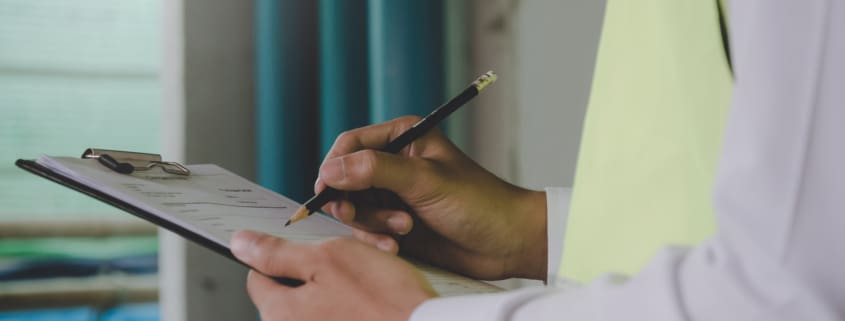IRS Audit Checklist: What to Expect and How to Prepare
The thought of an IRS audit can be daunting. IRS may select your tax return for various reasons, including random selection, suspicion of incorrect reporting, or because your return is different from others in your demographic. Regardless of the reason, you need to be ready by having all the necessary documents and information on hand.
In this article, we will provide you with a comprehensive list of items and documents you should expect to provide during an audit and tips on how to prepare.
What to Expect During an Audit
An audit is a process that involves a thorough review of an organization’s financial records and operations to ensure compliance with applicable laws and regulations. If you’re facing an audit for the first time, here’s what you can expect:
Preparation: Before the audit begins, you’ll need to gather and organize all relevant financial documents and records, including bank statements, receipts, invoices, and contracts.
Planning: The auditor will work with you to plan the audit, which will involve establishing timelines, determining the scope of the audit, and identifying any potential risks or issues.
Fieldwork: The auditor will visit your organization to conduct on-site inspections, conduct interviews with staff, and review relevant documents and records.
Findings: The auditor will prepare a report outlining their findings and any areas of concern, along with recommendations for addressing any issues that were identified.
Follow-up: After the audit is complete, you’ll be expected to address any findings and take steps to improve your organization’s financial management and compliance.
While an audit can be a complex and challenging process, it can also be an opportunity to identify areas of improvement and strengthen your organization’s financial practices.
IRS Audit Checklist: What Documents Are Required for an IRS Audit?
During an audit, the IRS auditor will want to see evidence that supports the information you reported on your tax return. This may include, but is not limited to, the following items:
Proof of Income:
W-2s, 1099s, and other forms that show the income you received from various sources.
Receipts and Records of Expenses:
This includes receipts for business expenses, charitable contributions, medical expenses, and other itemized deductions.
Bank Statements:
The auditor will want to see your bank statements to verify that the deposits and withdrawals reported on your tax return match the information on your bank statements.
Investment Records:
The auditor will want to see stock or bond certificates, brokerage statements, and any other records related to your investments.
Business Records:
If you are self-employed or have a small business, the auditor will want to see your business records, including ledgers, invoices, and any other records related to your business operations.
Home Office Expenses:
If you claim a home office deduction, the auditor will want to see documentation of your expenses, such as utility bills, mortgage or rent payments, and repairs and maintenance costs.
Vehicle Expenses:
The auditor will want to see records of your vehicle expenses, such as gas receipts, maintenance receipts, and a log of your business miles.
Retirement Plan Contributions:
Theauditor will want to see records of your contributions, including contribution receipts and records of employer contributions.
Charitable Contributions:
Theauditor will want to see records of your contributions, such as receipts from charities and bank statements showing the contribution.
How to Prepare for an Audit
An audit goes as well as you prepare for it. To prepare for an audit, consider the following steps:
Gather all the necessary documents: Make sure you have all the necessary documents listed above. If you don’t have a particular document, try to obtain it as soon as possible.
Organize your records: Make sure your records are organized and easily accessible. This will make it easier for you to locate the information the auditor needs.
Review your tax return: Before the audit, review your tax return to make sure that all the information is correct and that you have documentation to support the information.
Seek professional help: If you are unsure about how to prepare for an audit or if you need help with your records, consider seeking the help of a professional tax preparer or accountant.
Be honest: During the audit, be honest and straightforward with the auditor. If you made a mistake, admit it and provide any necessary documentation to support the correction.
Summary
An IRS audit can be a stressful experience, but by being prepared and having all the necessary information and documents on hand, you can reduce your stress and increase your chances of a successful outcome.
At Milikowsky Tax Law, we have over a decade of experience working with IRS and tax audits. We’re experts in defending business owners in the face of IRS or other government agency audits.Interested in learning more? Read on to learn how to respond to an IRS audit.



